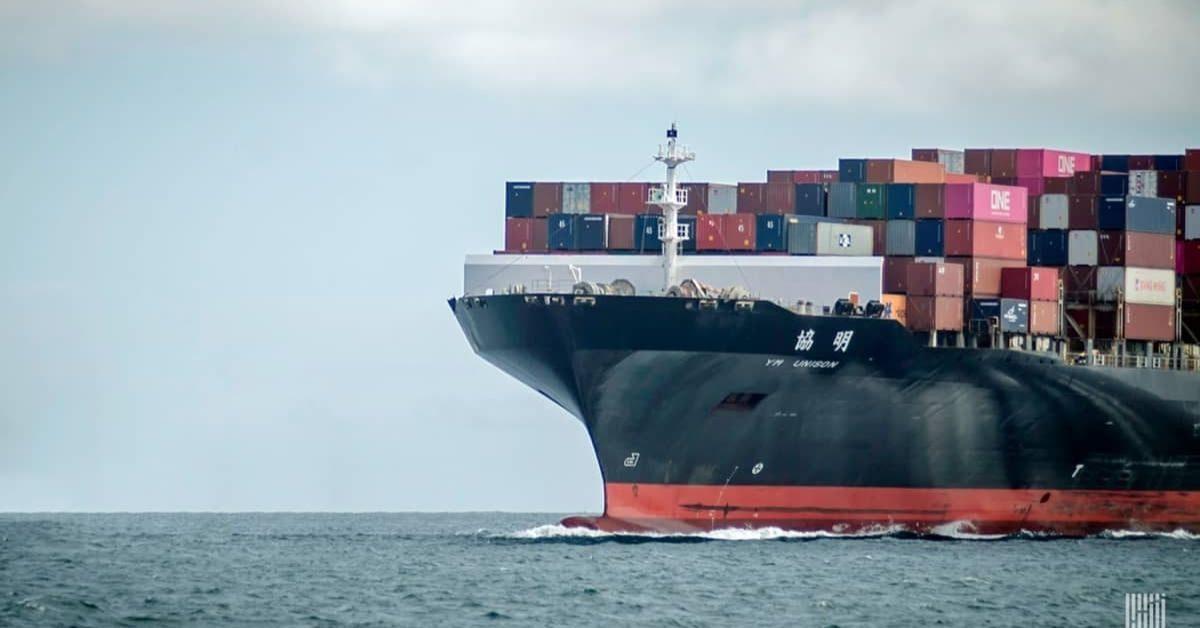HD Hyundai’s subsidiary, Korea Shipbuilding & Offshore Engineering, and Avikus signed an agreement on March 14th to conduct a fuel-saving verification project using autonomous navigation systems. The project involves five companies, including Pan Ocean, POS SM, Korean Register of Shipping, Korea Shipbuilding & Offshore Engineering, and Avikus.
The project aims to verify the fuel-saving effect of autonomous navigation systems on actual ships, making it a significant collaboration between domestic shipbuilders, autonomous navigation companies, shipping companies, and classification societies. Although the concept of the optimal route already exists, there have been difficulties in realizing it due to the need for manual adjustments to speed and route depending on weather conditions. Therefore, energy-saving verification has been conducted only through simulations led by shipbuilders or equipment manufacturers. This project, however, will verify the automatic execution of optimal route and speed plans based on autonomous navigation systems and actual ship operating data, making the results more reliable. This verification is expected to be a significant development in the field of eco-friendly and autonomous navigation.
The autonomous navigation system, HiNAS2.0, developed by Avikus, which will be used in this verification, is an AI-based system that guides the optimal navigation route by integrating information provided by various navigation equipment and sensors and performs collision avoidance. The automatic control of optimal route and speed planning is expected to lead to substantial fuel savings.
In this project, Pan Ocean and POS SM will provide operational ships and data, and conduct feasibility assessments of the verification process. Korea Shipbuilding & Offshore Engineering will develop a fuel-saving verification framework through data analysis, while Korean Register of Shipping will evaluate the developed framework for fuel-saving verification and perform technical reviews for stable implementation and operation of HiNAS2.0.
Pan Ocean is also developing and verifying eco-friendly solutions, such as a rotor sail pilot operation with the Korean Register of Shipping and Korea Shipbuilding & Offshore Engineering, while Korea Shipbuilding & Offshore Engineering is working on the development and verification of alternative fuel supply systems, such as hydrogen/carbon dioxide/ammonia. There is also interest and expectations for synergy effects through future collaborations.
In May 2022, Avikus successfully completed the world’s first transoceanic autonomous navigation for 33 days on an LNG carrier, verifying a 7% improvement in propulsion fuel efficiency and a 5% reduction in greenhouse gas emissions by autonomously navigating the optimal route.
“This project is important in quantitatively verifying the fuel and carbon reduction effects of autonomous navigation based on actual operating data,” said Avikus CEO Lim Do-hyung. “We will continue to develop technology to improve fuel efficiency and respond to environmental regulations.”
“This joint cooperation will provide significant research that can confirm the improvement in ship operation efficiency and carbon emission reduction through the use of autonomous navigation technology,” said Pan Ocean CEO Ahn Jung-ho. “It is expected to greatly contribute to achieving Pan Ocean’s declaration of carbon neutrality by 2050.”
The Korean Register of Shipping also signed a joint research agreement for the commercialization of Hyundai Heavy Industries, Liberia GIKUK, Avikus, and autonomous navigation systems in August 2022, and received conceptual approval in January 2023 after verifying safety and suitability through the review of classification rules and domestic and international regulations for the HiNAS2.0 system.






